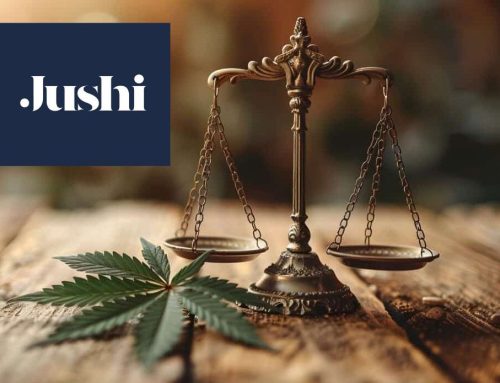Michigan Cannabis Trade Group Challenges New 24% Wholesale Tax in Court
LANSING – Yesterday, hours after Gov. Gretchen Whitmer put her signature on Michigan’s latest state budget, the Michigan Cannabis Industry Association moved swiftly to court, filing suit to block a fresh 24% excise tax on wholesale Cannabis transfers. The association, which counts more than 400 [!] licensed operators among its members, claims the levy sidesteps constitutional safeguards tied to the 2018 voter initiative that legalized recreational Cannabis sales.
The tax, set to kick in on Jan. 1, 2026, targets sales from growers and processors to retailers, layering onto the existing 10% retail excise and 6% sales taxes for an effective rate near 40%. Lawmakers baked the measure into the Comprehensive Road Funding Tax Act as part of a hard-fought budget compromise, projecting it to pull in $420.7 million annually for road and bridge repairs. Whitmer, who once pushed for a steeper 32% rate modeled on tobacco levies, hailed the package in a statement as a step toward safer travel across the state.
In its complaint lodged with the Michigan Court of Claims, the association argues the new tax amounts to an unauthorized tweak to the Michigan Regulation and Taxation of Marihuana Act, the ballot measure that voters passed with 56% support seven years ago. That law outlined a specific excise framework, and the suit contends any additions demand either a three-quarters supermajority in the Legislature or fresh voter sign-off, neither of which occurred here. The group wants the court to declare the tax invalid and issue a preliminary injunction to halt collections.
“This is about protecting the rules that Michigan voters set,” said Robin Schneider, executive director of the association, in an interview. She pointed to the industry’s recent strains: a glut of licenses has flooded the market with supply, driving wholesale flower prices down 70% since 2022, to around $800 per pound. Operators, many of them small outfits, say the added burden could squeeze margins to the breaking point.
State officials see it differently. The tax doesn’t rewrite the original act outright, they maintain, but slots into broader revenue tools without needing extra hurdles. House Speaker Matt Hall, a Republican from Richland Township who helped broker the deal, described the 24% figure as a balanced outcome after months of talks. Democrats, holding slim majorities in both chambers, backed the plan to end a budget impasse that risked a partial government shutdown.
The clash underscores a familiar tension in Cannabis taxation: the drive for public dollars versus the risk of undercutting legal sales. Michigan’s market, the nation’s second-largest after California at $3.3 billion in 2024 recreational revenue, has thrived partly on its modest tax setup [one reason the black market’s share has shrunk to under 40% of total consumption], per state estimates. But at 40% combined, Michigan would leapfrog states like Illinois (37.5% effective) and Colorado (about 30%), potentially reversing that progress.
Consider the numbers: Last year, Cannabis excise taxes alone brought in $331 million, split evenly among schools, roads, and local governments. A 24% wholesale hit could boost that pot short-term, but industry math suggests diminishing returns. If prices climb 15-20% at retail [a conservative bump based on similar hikes elsewhere] demand might dip 10%, eroding the $420 million windfall to $380 million or less. That’s the revenue paradox at work: taxes too high chase customers underground, where no revenue flows to Lansing coffers. Small retailers, already facing 20% license fees and compliance costs, stand to lose most; larger vertical players might absorb it through scale.
Legal experts split on the suit’s odds. The constitutional angle hinges on whether the wholesale tax truly “amends” the voter law – a gray area, as Bridge Michigan noted in pre-filing analysis. If the court sides with the industry, it could ripple beyond Michigan, testing how states square ballot protections with fiscal needs. Protests at the Capitol last week drew hundreds, signaling broad operator unease, though consumer groups have stayed quiet so far.
For Michigan’s Cannabis sector, already navigating federal rescheduling talks and a licensing moratorium, this fight marks another test of resilience. A win for the association would preserve a competitive edge; a loss might force consolidations and price wars. Either way, the case heads to hearings soon, with roads [and revenues] hanging in the balance.
We’ve* seen taxes reshape markets from coast to coast. Michigan’s bet here is bold: Use Cannabis cash to patch potholes without alienating the base that built the boom. But history warns against overreach. Watch the court’s early rulings; they’ll signal whether this tax endures as a funding fix or folds under its own weight.
*Highly Capitalized Network-HCN reports impartially on developments in the industry and its participants & does not endorse, promote, or take positions on any party, association, or company involved.



































